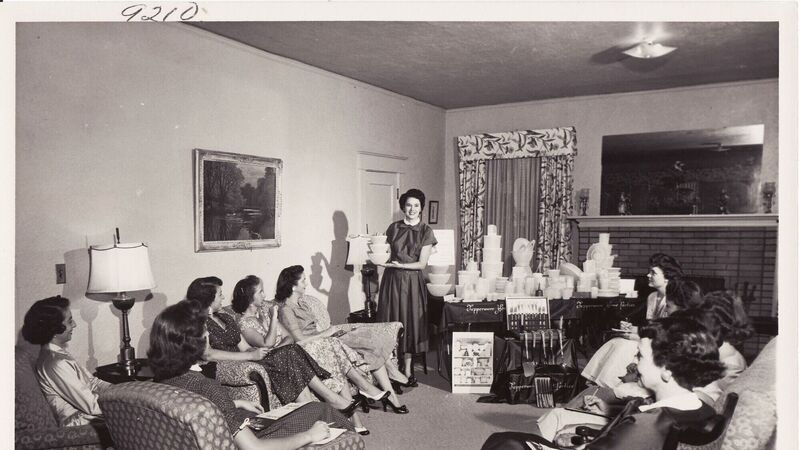Tupperware: How the plastic containers conquered the world

Hosting a Tupperware party, as illustrated here in the 1950s, brought women at least part ways out of the kitchen.
Try from €1.50 / week
SUBSCRIBE
Hosting a Tupperware party, as illustrated here in the 1950s, brought women at least part ways out of the kitchen.
With single-use plastic recently ripped from the produce in our supermarkets, and a revolting raft of drinking bottles and other malleable rubbish choking our oceans — it’s easy to forget just how exciting innovative plastics were in the mid’ 20th century. During the pandemic, the share price of one old favourite, polyethylene, has tripled.
Tupperware was developed by the delightfully named Earl Silas Tupper (1907–1983) a Massachusetts native. It took him eight years to bring his bell-shaped, pliable, lidded storage boxes effectively to market in 1946 through the ingenious mechanism of sale-through-presentation at-home parties.
Already a subscriber? Sign in
You have reached your article limit.
Annual €130 €80
Best value
Monthly €12€6 / month
Introductory offers for new customers. Annual billed once for first year. Renews at €130. Monthly initial discount (first 3 months) billed monthly, then €12 a month. Ts&Cs apply.
CONNECT WITH US TODAY
Be the first to know the latest news and updates
Newsletter
Sign up to the best reads of the week from irishexaminer.com selected just for you.
Newsletter
Sign up for our weekly update on residential property and planning news as well the latest trends in homes and gardens.
Newsletter
Keep up with stories of the day with our lunchtime news wrap and important breaking news alerts.
Thursday, February 12, 2026 - 10:00 PM
Thursday, February 12, 2026 - 6:00 PM
Thursday, February 12, 2026 - 10:00 PM
© Examiner Echo Group Limited